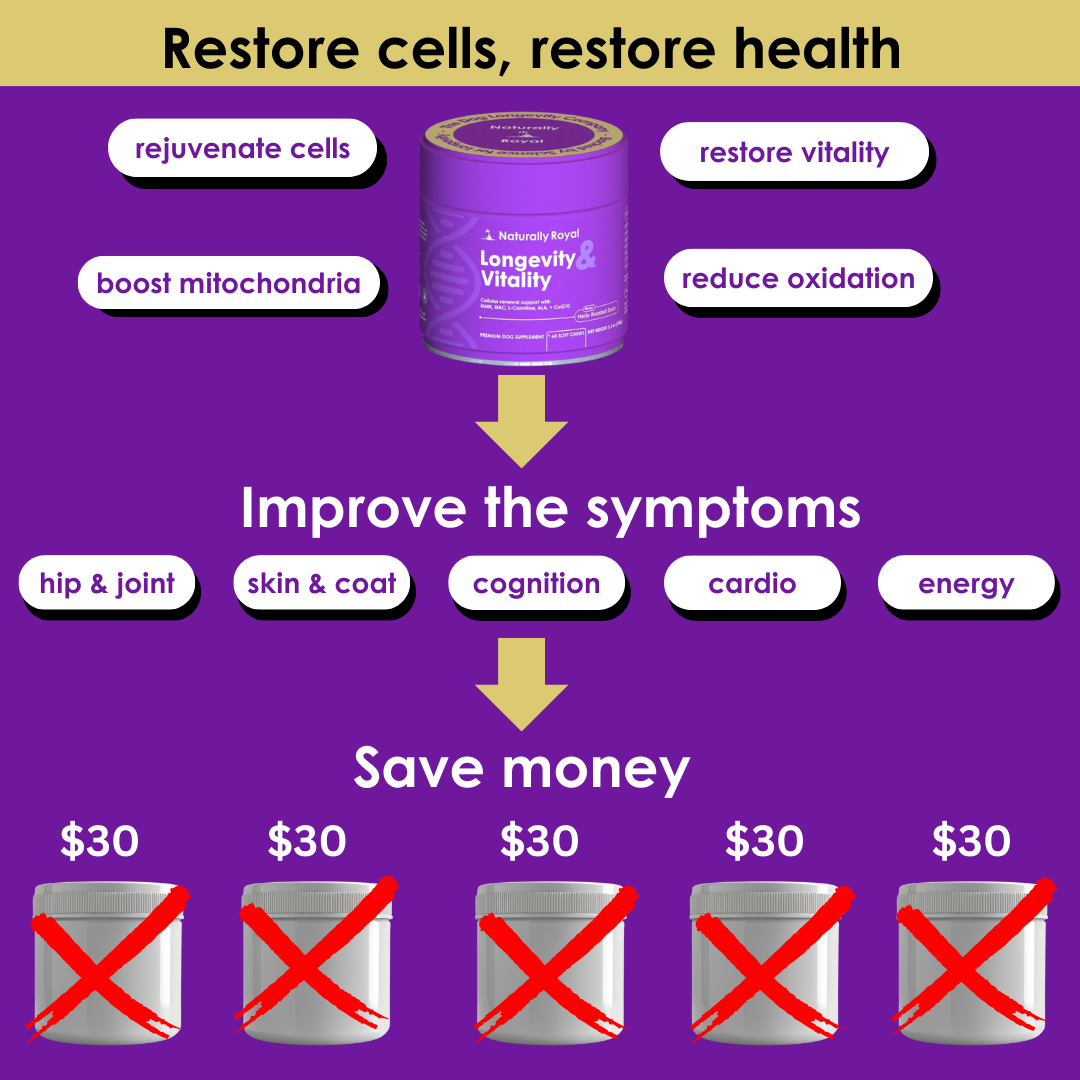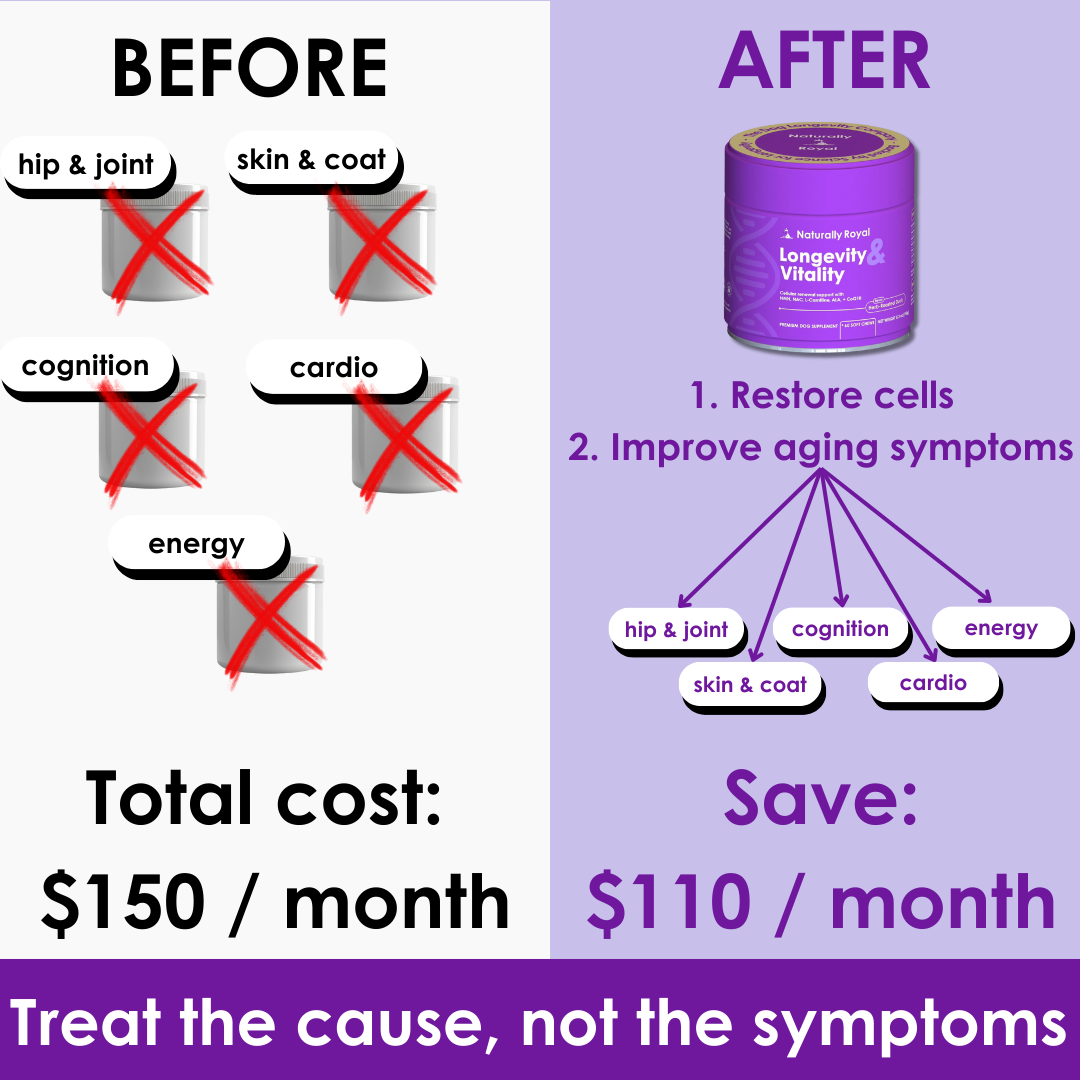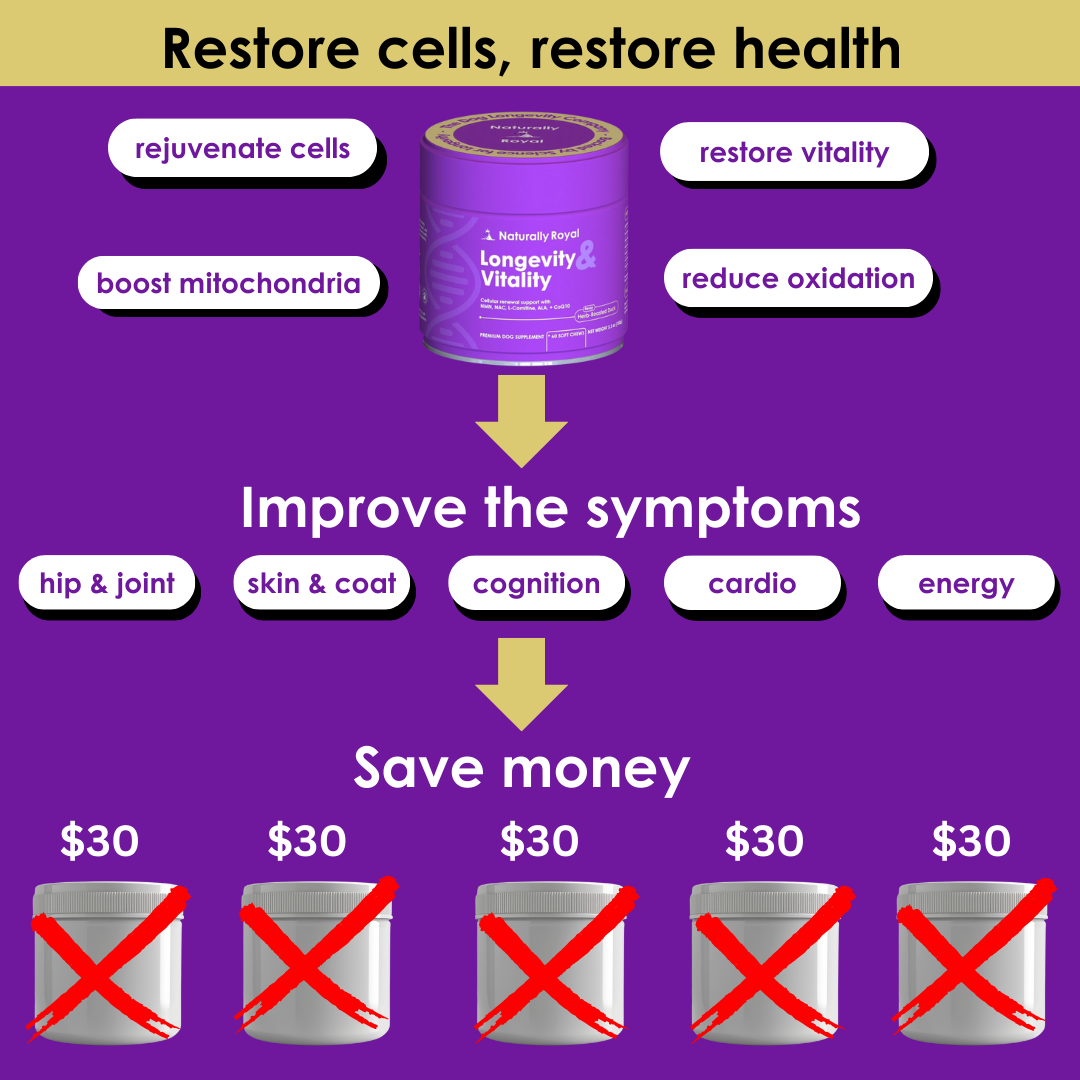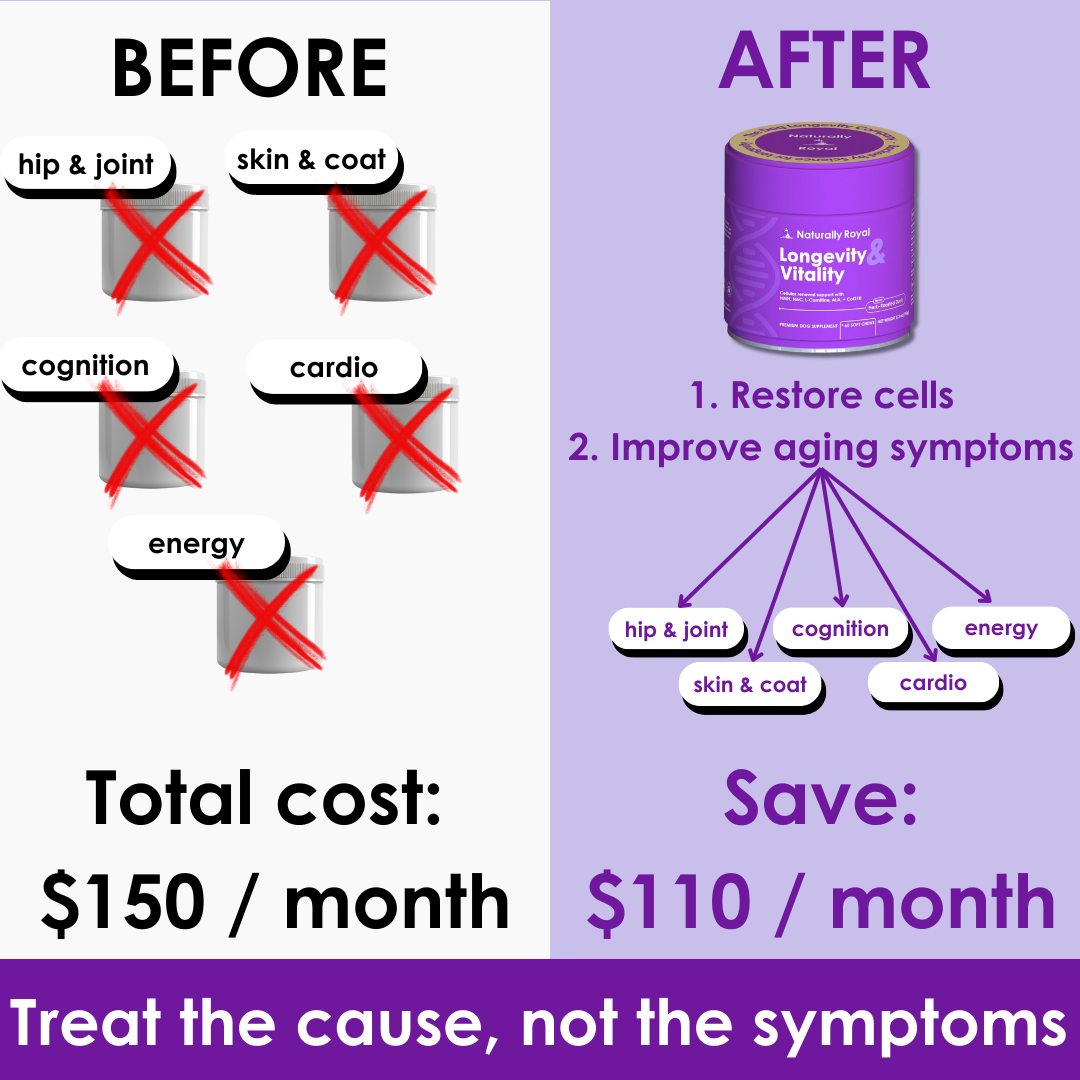Top 10 Reasons Why Your Dog Shakes
Seeing your dog shake can be a worrying experience for any pet owner, especially when the cause isn’t immediately clear. Shaking or trembling in dogs can happen for various reasons, some harmless, while others may indicate a more serious underlying issue. Let's explore the potential causes of shaking in dogs and how this behavior could impact their longevity. We'll also discuss when it's time to seek veterinary care to ensure your dog remains healthy and happy:
Common Causes of Shaking in Dogs
1. Cold and Weather-Related Shaking
Just like humans, dogs may shiver or tremble when they’re cold. Smaller breeds with less body fat and thinner coats, like Chihuahuas, are especially prone to shaking when the temperature drops. This form of trembling is generally harmless but can lead to hypothermia if left unchecked. To avoid this, make sure your dog has proper shelter or a warm coat during colder months.
2. Excitement and Anxiety
Excitement or stress can cause shaking in dogs. Some dogs may tremble with excitement when they see their favorite person, toys, or when anticipating a walk. On the flip side, anxiety or fear—such as during thunderstorms, fireworks, or vet visits—can also trigger trembling. This type of shaking is typically temporary and stops once the dog calms down.
3. Pain and Injury
Shaking or trembling can be an indicator that your dog is in pain or discomfort. Whether it's due to a recent injury, arthritis, or other health conditions, dogs may shake as a response to physical pain. Pay close attention to signs like limping, reluctance to move, or unusual vocalizations, as these could accompany shaking due to injury.
4. Toxins and Poisoning
Tremors or shaking can be a sign that your dog has ingested something toxic. Common culprits include chocolate, xylitol (found in sugar-free gum), or certain household chemicals. In cases of poisoning, shaking may be accompanied by vomiting, diarrhea, excessive drooling, or seizures. This is a veterinary emergency and requires immediate attention.
5. Neurological Disorders
Certain neurological conditions can also lead to shaking in dogs. One example is wobbler syndrome, a condition affecting the spinal cord, which causes dogs to walk with a wobbly gait and may cause shaking or tremors. Seizure disorders, like epilepsy, can also result in uncontrollable shaking, although this tends to be more severe and noticeable.
6. Canine Distemper
Canine distemper is a viral disease that affects a dog’s respiratory, gastrointestinal, and nervous systems. One of the hallmark symptoms of advanced distemper is shaking, particularly in young puppies that haven't been fully vaccinated. This is a serious condition requiring prompt veterinary care to improve your dog’s chances of survival.
7. Old Age and Generalized Tremor Syndrome (GTS)
As dogs age, they can develop tremors due to a condition known as generalized tremor syndrome (GTS), also called shaker syndrome. This condition is more commonly seen in small breeds like Maltese and Poodles and typically involves tremors that affect the entire body. The cause of GTS is unknown but can usually be managed with medication.
8. Hypoglycemia (Low Blood Sugar)
Shaking can occur in dogs experiencing hypoglycemia or low blood sugar. This is more common in toy and small breeds, puppies, or diabetic dogs. Signs of hypoglycemia may also include weakness, confusion, and seizures. If left untreated, it can be life-threatening.
9. Nausea and Gastrointestinal Issues
Dogs can shake if they are feeling nauseous, whether due to a car ride, gastrointestinal upset, or motion sickness. You may notice shaking paired with signs of stomach distress such as drooling, licking lips, or vomiting.
10. Fever or Infection
Shaking can be a sign of fever, often indicating that the dog is fighting an infection. This could range from something mild like kennel cough to more severe infections, such as pneumonia. Other signs of infection may include lethargy, loss of appetite, and coughing.
How Shaking Impacts Longevity
While occasional trembling due to excitement or mild cold is generally harmless, shaking that results from medical conditions can significantly impact your dog’s quality of life and longevity if left untreated. For example:
- Toxins and poisoning can lead to organ failure and death if not treated immediately.
- Neurological disorders like epilepsy or wobbler syndrome require lifelong management, and early intervention can improve outcomes.
- Chronic pain from arthritis or injury may reduce mobility and decrease your dog's overall well-being, especially in older dogs.
- Infections or distemper are life-threatening without veterinary treatment, and prompt care can extend your dog's life.
When to Seek Veterinary Care
It’s essential to monitor the context of your dog’s shaking to determine whether it requires immediate attention. You should contact your vet if:
- The shaking is accompanied by other symptoms like vomiting, diarrhea, or lethargy.
- Your dog’s tremors worsen over time or become more frequent.
- Your dog is experiencing pain, difficulty walking, or obvious signs of distress.
- Shaking happens after potential exposure to toxins.
- Your dog has a fever, infection, or any signs of distemper.
How to Support Your Dog's Longevity
Here are ways to help manage or prevent conditions that could lead to shaking and enhance your dog’s longevity:
-
Regular Vet Check-ups: Regular visits to the vet can catch early signs of health issues that could cause shaking, such as arthritis or neurological conditions.
-
Proper Diet and Exercise: Ensuring your dog has a balanced diet and gets regular exercise can reduce the risk of obesity, which can exacerbate conditions like arthritis that cause pain and shaking.
-
Vaccination: Keeping your dog up-to-date with vaccinations, including distemper, is crucial in preventing diseases that cause shaking and reduce life expectancy.
-
Home Environment: Keep your dog warm in cold weather, and avoid exposing them to stressful situations that could cause anxiety-induced shaking.
-
Quick Action: In cases of poisoning or injury, quick action can save your dog’s life, so always be vigilant and seek immediate care if your dog ingests something harmful or shows signs of pain.
Conclusion
Shaking in dogs can be caused by a wide range of factors, from excitement to severe medical conditions. Understanding the cause of your dog’s trembling is crucial in determining whether it's a minor issue or one that could affect their longevity. By staying proactive with veterinary care and being attentive to your dog’s health, you can help ensure they lead a long, happy, and healthy life.
























